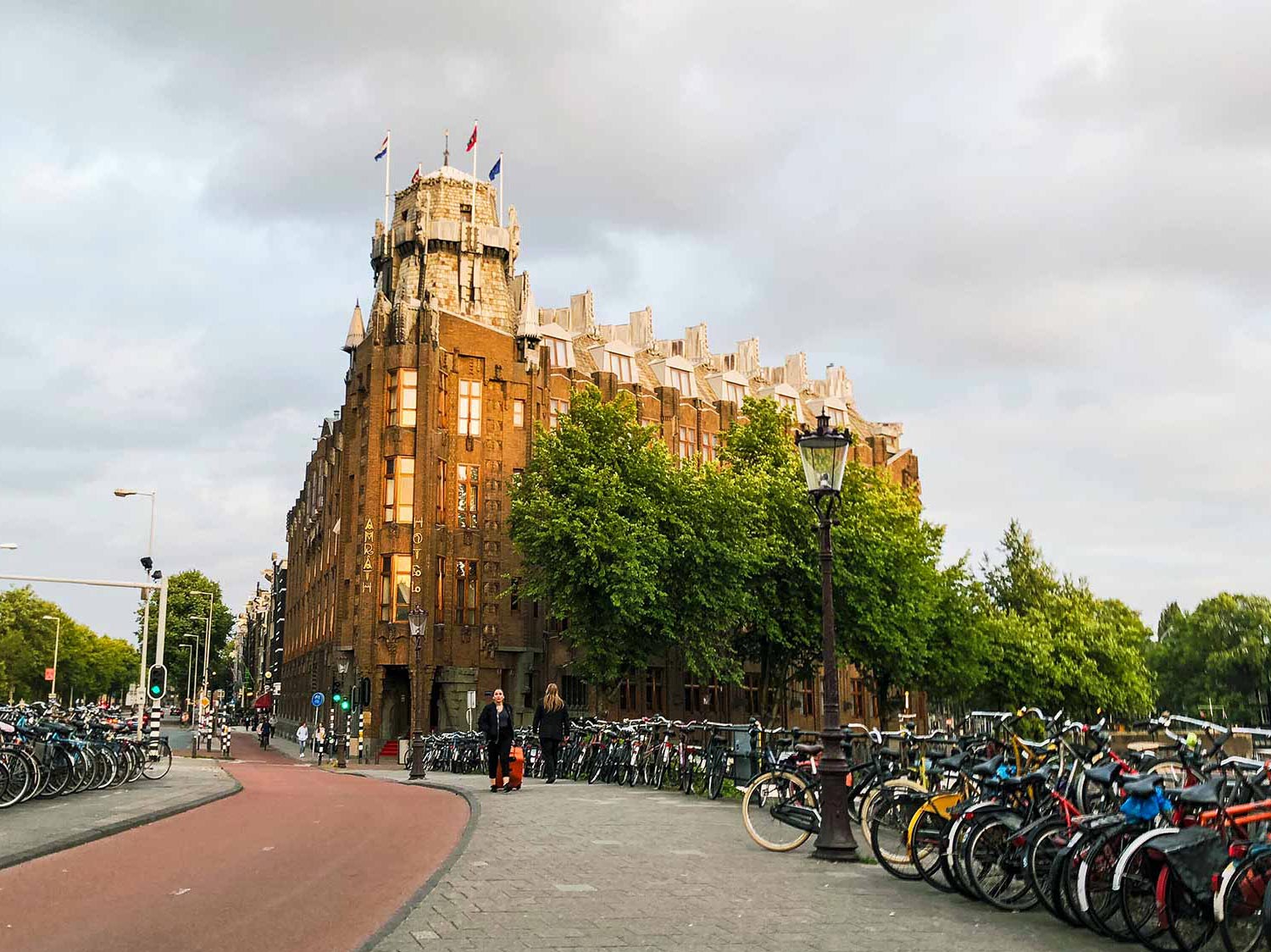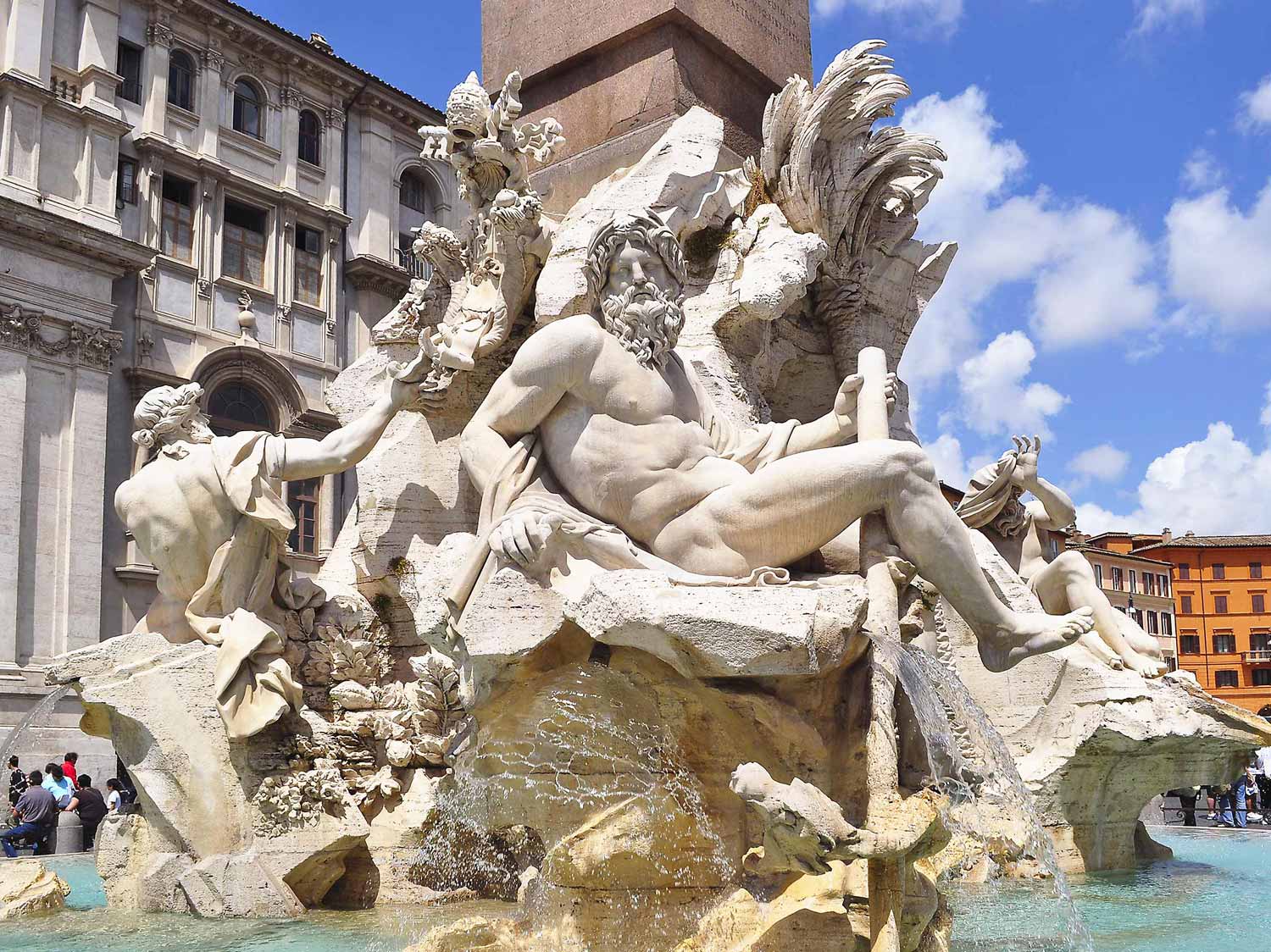Destination Rome: A Journey Back In Time
The best places to visit in Rome, Italy.
Rome is quite the impressive and beautiful city that one must visit, at least once in their lifetime. If it’s your first time to visit Rome, you need some planning and a solid itinerary. There are so many things to do and many places to see in Rome. Churches, museums, ruins, historic picturesque streets – all competing left and right to attract you to explore. And it feels like you're wandering through a gigantic city-sized museum. Rome is so rich in history, arts, ruins and romance. And only very few cities can rival Rome’s amazing artistic heritage.
Colosseum
The Colosseum or Coliseum, Rome’s greatest gladiatorial arena, it also its top tourist attraction. It was considered as Rome’s most fearsome arena. It was used for gladiatorial games involving fighting animals or each other; animal hunts, executions, and re-enactments of famous battles. While it holds an estimated 50,000 to 80,000 spectators and audience of 65,000, it wasn’t the biggest. Circo Massimo could hold up to 250,000.
This is the most thrilling sight in Rome, in my opinion. The architecture alone could just make you speechless. Don’t just admire it from the outside. You have to see the inside of it and walk around. The extra cost to get in is worth it.
Roman Forum and Palatine Hill
The Roman Forum is another spectacular site to visit – a magnificent area surrounded by the ruins of ancient government buildings, temples, basilicas and public spaces. Originally a burial site, it was first developed in the 7th century BC. Later on becoming the political, social hub and marketplace.
There’s a lot to see here, it’s like a playground or a maze full of ruins. From Largo della Salara Vecchia – you can also enter directly from the Palatino or through an entrance near the Arco di Tito or Arch of Titus – you will see the Tempio di Antonino and Faustina on your left. From there, you’ll see halls, temples, podiums, arches, tombs, columns, slab of marbles anywhere from AD 141 to the fall of the Western Roman Empire. This place is so full of history, it’s almost unreal – imagine seeing some markings where Julius Caesar was cremated, or a podium where Shakespeare had Mark Anthony made his famous ‘Friends, Romans, countrymen…’ speech – so many freaking awesome things to see!
Palatine Hill or Palatino is another site with magnificent ruins and amazing views. It is considered as a top choice archaeological site in ancient Rome. This is where the city was supposedly founded by Romulus in 753 BC and the emperors of Rome lived in palatial luxury.
I’d recommend spending more than a half day here for a leisurely walk. No need to rush. This site is a once in a lifetime kind of experience – at least it was for me. Something I will never forget.
St. Peter’s Basilica in the Vatican City
This is not only Italy’s most spectacular and largest basilica, but it is the world’s largest church building. It is a masterpiece itself – housing the most treasured work of art such as Michelangelo’s Pietà and his soaring dome (he never lived to see it built), and Bernini’s famous 29m-high baldachin over the papal altar.
It could get very crowded here. I’d recommend visiting it very early in the morning, before 8am.
Strict dress codes are enforced. No shorts, mini-skirts or bare shoulders allowed.
Things to admire inside: Facade, Interior: Pietà, Bernini's famous baldachin, Dome, Museo Storico Artistico, Vatican Grottoes, Tomb of St. Peter, etc.
St. Peter’s Square
This plaza is located directly in the front of St. Peter’s Basilica in the Vatican City. The piazza's scale is spectacular: it measures 320 m by 240 m at its largest. There are 284 columns and 140 saints on top of the colonnades.
The obelisk in the center was brought to Rome by Caligula from Heliopolis in Egypt – where it was originally erected, and later used by Nero as a turning post for the chariot races in his circus.
Via della Conciliazione
This is the street that connects Saint Peter’s Square to the Castel Sant’Angelo. It is full of shops and bordered by historical and religious buildings. In my opinion, it’s another underrated area where you could actually capture some fun and nice photos.
Vatican Museums/Sistine Chapel
Vatican Museums have the largest collections of art in the world – boasting the most important masterpieces of Renaissance art, exhibits ranging from Egyptian mummies to modern paintings. Most notable ones include Museo Pio - Clementino's spectacular collection of classical statues, a suite of rooms frescoed by Raphael, and the Sistine Chapel painted by Michelangelo.
Sistine Chapel/Cappella Sistina houses two of the world’s most famous works of art – Michelangelo’s ceiling frescoes (1508–12) and his Giudizio Universale (Last Judgment; 1536–41).
Everything is spectacular and awe-inspiring. It’s quite hard to spend as much time to admire everything because this too, could get very crowded – like shoulder-to-shoulder type of crowd. But don’t go browsing too quickly, these spectacular collections left and right deserve your admiration.
It’s best to visit this place early in the morning, before the line gets too long.
Note: Cameras are not allowed inside Sistine Chapel.
Pantheon
This striking former Roman temple is 2,000 year-old – built in AD 118 and 125, now a church, is considered the best preserved ancient monuments of Rome and one of the Western World’s most influential buildings. This Roman temple was dedicated to all the gods of pagan Rome.
One feature that stands about the Pantheon is its massive dome – considered the greatest architectural achievement of the ancient Romans, it was until the fifteenth century the largest cupola in the world and remains the largest unreinforced concrete dome in existence.
The tomb of the artist Raphael, along with those of Kings Vittorio Emanuele II and Umberto I, can be found in the cavernous marble - clad interior.
Pantheon is open to the public – there is no fee. It's not a museum, it's a church. Feel free to attend a mass.
The perfect way to stumble upon Pantheon is coming from the Spanish Steps and ending it Piazza Navona.
Trevi Fountain
This flamboyant ensemble is the largest baroque fountain in Rome. It is also one of the most famous fountains in the world. The design tells a story of sea god Oceanus in a shell-shade chariot ed by Tritons with seahorses. A statue depicts Abundance in the niche to the left of Neptune, and Salubrity is to the right. The water comes from the Aqua Virgo, an underground aqueduct dating back to the 1st century BC.
It’s a beautiful fountain for sure. The only problem is that you will not be able to FULLY enjoy its beauty because of the crowd. This place is ALWAYS busy – packed with SO MANY tourists. It’s a shoulder-to-shoulder kind of crowd, you can’t even take a good picture of yourself with the full view of the fountain as your backdrop. I never thought I would ever struggle taking selfies ever, until I got here.
While in Trevi Fountain, don’t forget to do the coin tossing tradition – coins are to be thrown using your right hand over your left shoulder. Doing this means you’re wishing for your return to Rome. Trevi Fountain appeared in several notable films, one film that truly influenced the coin tossing tradition was Three Coins in the Fountain, same title of its theme song sung by Frank Sinatra.
Spanish Steps/Piazza di Spagna
A very popular plaza for people-watching, and just watching the world go by. The 174 steps rise from Piazza di Spagna to Piazza Trinità dei Monti, landmarked by Trinità dei Monti church at the top – offering great views over Rome. Down the square, you will find Barcaccia, the 'sinking boat’ fountain.
If you feel like taking a break from walking and you don’t mind the crowd, sit on the stairs and if you’re lucky, some random musicians may even play some music, adding some more fun to the atmosphere. I truly think this place is a bit overrated, though.
There are plenty of shops and cafes in the area, but can be very pricey. No food allowed on the steps.
It’s a pretty safe area, but be mindful of pick-pocketing.
Ponte Sant’Angelo
Here’s an excellent place for a walk. Not only that it offers you a nice view of the city. There’s something special about this bridge – I was fascinated by the ten stucco angels holding instruments. As you walk across the bridge, you’ll see beautiful angel sculptures: Angel with Column, Angel with the Whips, Angel with the Crown of Thorns, Angel with Veronica’s Veil, Angel with the Garment and Dice, Angels with the Nails, Angel with the Cross, Angel with the Superscription, Angel with the Sponge, and Angel with the Lance.
Castel Sant’Angelo
Castel Sant’Angelo is another notable landmark in the city. It is not only iconic outside, but the inside is worth taking a look at.
Built for Emperor Hadrian as a mausoleum, it was transformed in the 6th century into a papal fortress and named after an angelic vision of 590 by Pope Gregory the Great.
This beautiful castle is now a museum, it boasts collections of paintings, sculptures military memorabilia, and weapons used by soldiers fighting to protect the castle. You could check out the inside to see elegant Renaissance interiors. It also feels like being in Game of Thrones set, ha! From the top it offers breathtaking views of the city.
Book your tickets online. Prices may vary on temporary exhibitions.
Piazza Navona, Fontana dei Quattro Fiumi and Fontana del Nettuno
Piazza Navona is Rome’s central square, showcasing detailed and spectacular fountains, baroque palaces and colorful cast of street artists, and tourists. It’s most notable ensemble is Bernini’s Fontana Dei Quattro Fiumi or Fountain of the Four Rivers. At the end of the north end of the square is Fontana del Nuttuno or Fountain of Neptune. Both are very detailed and stunning.
It is lined with cafes and restaurants, and because it’s a tourist spot, expect a costly meal.
There are other places that we didn't plan to visit, but stumbled upon: Piazza della Repubblica, Campo de’ Fiori, and Piazza del Popolo.
TRAVELING TO ROME, ITALY?
MORE ON EUROPE:
Hi, I'm Shar! I started the outbounder as a place to share my adventures as I explore different places around the world, my love for different kinds of food, and a passion to capture a moment in time through photography.



























































Rome is always full of tourists. To get the most out of your visit, I've compiled a list of tips to keep in mind – all of which are based on my experience.